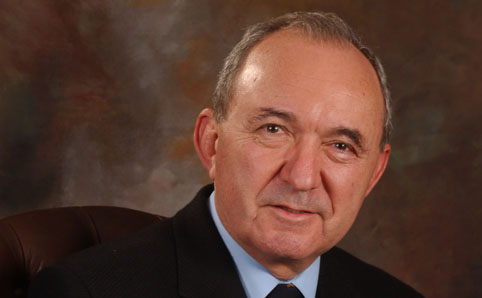Latest News Archive
Please select Category, Year, and then Month to display items
![]()
The University of the Free State (UFS) has an enrolment plan for 2007–2019 that was approved by the Department of Higher Education and Training (DHET). The university is compelled to adhere to these enrolment targets, as over-enrolment poses a risk to the academic integrity, financial sustainability, and student success of the university.
The UFS received 47 000 applications for admission in 2018, of which 17 000 applicants received final admission. All admission letters clearly stipulate that admission is subject to availability of space during registration. The enrolment target for new first-time entering students for 2018 is 8 000, therefore only 8 000 students can be registered across the university’s three campuses during this intake period.
The Executive Management of the UFS welcomes the fact that President Jacob Zuma’s announcement on 16 December 2017 about free education for the poor and working class has allowed many more students the opportunity to register. Several meetings between the Executive Management and the Student Representative Council (SRC) have taken place since the beginning of 2018 to discuss the implications of the President’s announcement. Engagement with the SRC regarding the registration process is also continuously taking place.
Online registration for all students opened on 8 January 2018. The UFS has put several measures in place to assist new first-time entering undergraduate students. Furthermore, students who have moved into residences and participated in the university’s Gateway Programme, as well as students who arrived on campus, were assisted to register for programmes with available space. In cases where the first option of study was full, students were redirected to other programmes with available space within the specific faculty or other faculties, provided that they comply with the relevant admission criteria. Only mainstream programmes in the Faculty of Economic and Management Sciences now have space left. The rest of the undergraduate programmes in all faculties on all the campuses are full.
Students who could not be accommodated in any of the programmes due to limited space are being directed to the Central Application Clearing House (CACH).
UFS awards honorary degree to Justice Richard Goldstone
2012-01-26
 |
| Justice Richard Goldstone |
A huge honour will be bestowed upon the University of the Free State (UFS) when the world renowned Justice Richard Goldstone will be receiving an honorary degree at the official opening of our university.
The Doctor of Laws (honoris causa) degree will be conferred on Justice Goldstone on Friday 3 February 2012 at 10:00 on our Bloemfontein Campus.
Mr Richard Freedman, Director of the South African Holocaust and Genocide Foundation, and Judge Mahube Molemela, Justice of the Free State High Court, are amongst the prominent figures expected to attend this event.
Justice Goldstone served in the Constitutional Court from 1995 to 2003. Prior to that, he was a judge of the High Court and from 1989 a judge of the Supreme Court of Appeal. From 1994 to 1996 he was the first Chief Prosecutor of the United Nations Criminal Tribunals for the former Yugoslavia and Rwanda. He is presently a Senior Fellow at the Jackson Institute at Yale University in the United States. Over the past 18 years he has become a leading expert on international criminal law.
Prof. Neels Swanepoel, Head of the Department of Law of Procedure and Law of Evidence, said the faculty is proud to honour Judge Richard Goldstone for his outstanding legal career and in particular for his contribution to the development of international criminal justice.
“As Chief Prosecutor for both the International Criminal Tribunal for the former Yugoslavia (ICTY) as well as the International Criminal Tribunal for Rwanda (ICTR), he has contributed to precedent-setting judgments on genocide, war crimes and crimes against humanity. His publications on various aspects of International Criminal Justice have contributed towards the stage where those bearing the greatest responsibility for human and humanitarian rights violations, will face justice.”
Prof. Swanepoel says judge Goldstone has contributed towards laying the foundations for conflict resolution in societies that have transformed from repressive to democratic rule and to what is now referred to as ‘transitional justice’.
On Thursday 2 February 2012 at 19:00, Judge Goldstone will deliver a Prestige Lecture on ‘The Future of International Criminal Justice’ in the Auditorium of the C.R Swart Building on the UFS Bloemfontein Campus.
Media Release
26 January 2012
Issued by: Lacea Loader
Director: Strategic Communication
Tel: 051 401 2584
Cell: 083 645 2454
E-mail: news@ufs.ac.za